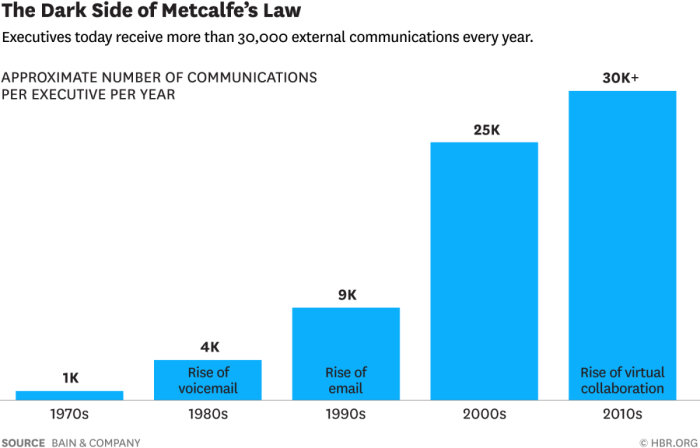Are phones making us zombies? Delving into the societal, cognitive, physical, ethical, and technological aspects of excessive phone use, this exploration sheds light on the profound impact our devices have on our lives.
From impaired social interactions and diminished cognitive function to physical health concerns and ethical dilemmas, the consequences of our smartphone obsession are far-reaching and demand our attention.
Societal Impact

The proliferation of smartphones has significantly altered social interactions and relationships. While they offer convenience and connectivity, they have also contributed to a decline in face-to-face communication and a rise in social isolation.
We’ve all seen those people glued to their phones, oblivious to the world around them. It’s like they’re zombies, walking around with their heads down, staring at a screen. But are phones really making us zombies? If you’re looking for a way to test your knowledge on this topic, check out the ap bio unit 6 mcq practice . This practice test will help you identify the areas where you need more study, so you can focus on those topics and improve your overall understanding of the material.
Whether or not phones are making us zombies, it’s important to be aware of the potential risks and take steps to protect yourself.
Diminished Socialization
Smartphones have become a constant companion, often taking precedence over real-world interactions. People spend excessive time engrossed in their devices, neglecting conversations and activities with those around them. This has led to a decline in meaningful social connections and a reduced sense of belonging.
Reduced Face-to-Face Communication
The ease of digital communication through messaging and social media has diminished the need for face-to-face conversations. People prefer to communicate virtually, avoiding the effort and inconvenience of in-person interactions. This has resulted in a loss of non-verbal cues, reduced emotional depth, and a decline in interpersonal skills.
Potential Long-Term Consequences
The long-term consequences of these changes are concerning. Social isolation can lead to loneliness, depression, and other mental health issues. Reduced face-to-face communication may hinder the development of social and emotional skills, affecting future relationships and well-being. Furthermore, the decline in real-world interactions may weaken community bonds and undermine social cohesion.
Cognitive and Psychological Effects

Excessive phone use has profound implications for our cognitive and psychological well-being. It impairs cognitive function, including attention, memory, and problem-solving abilities. Moreover, it can lead to psychological distress, such as anxiety, depression, and sleep disturbances.
Attention and Memory
- Constant phone notifications and multitasking fragment our attention, making it difficult to focus on tasks at hand.
- The constant bombardment of information overloads our working memory, reducing our ability to retain and recall information.
Problem-Solving and Decision-Making, Are phones making us zombies
- Excessive phone use promotes reliance on external sources for information, weakening our critical thinking and problem-solving skills.
- The constant need to check our phones for updates and messages creates a state of distraction, making it difficult to engage in sustained decision-making processes.
Psychological Impact
- Phone addiction can lead to symptoms of anxiety and depression, as individuals may experience feelings of unease or sadness when separated from their devices.
- Excessive screen time before bedtime disrupts sleep patterns, leading to insomnia and daytime fatigue.
Neurobiological Mechanisms
These effects are partly due to neurobiological changes in the brain. Excessive phone use stimulates the release of dopamine, a neurotransmitter associated with pleasure and reward. This leads to a cycle of compulsive behavior, where individuals feel compelled to check their phones repeatedly to experience the dopamine rush.
Physical Health Concerns

Prolonged phone use can lead to a myriad of physical health issues. These range from musculoskeletal problems to sleep disorders and even obesity.
One of the most common physical health risks associated with prolonged phone use is eye strain. Staring at a phone screen for extended periods can lead to dry eyes, headaches, and blurred vision.
Neck Pain
Another common physical health risk associated with prolonged phone use is neck pain. This is because when we look down at our phones, we put a lot of strain on our necks. Over time, this can lead to pain, stiffness, and even headaches.
Sleep Disorders
Prolonged phone use can also disrupt our sleep. The blue light emitted from phones can suppress the production of melatonin, a hormone that helps us fall asleep. This can make it difficult to fall asleep and stay asleep.
Obesity and Other Chronic Health Conditions
There is also some evidence that suggests that prolonged phone use may be linked to obesity and other chronic health conditions. This is because phone use can lead to a sedentary lifestyle, which can increase the risk of weight gain and other health problems.
Ethical and Cultural Considerations: Are Phones Making Us Zombies

The widespread use of phones raises ethical concerns related to privacy and data misuse. Additionally, phone addiction has cultural implications that impact traditional values and social norms. This section explores these considerations and the role of technology companies in addressing them.
Privacy Breaches and Data Misuse
- Phones collect vast amounts of personal data, including location, contacts, and browsing history.
- This data can be shared with third parties without users’ knowledge or consent, raising concerns about privacy violations.
- Data misuse can result in identity theft, targeted advertising, and even political manipulation.
Cultural Implications of Phone Addiction
Excessive phone use can disrupt traditional social interactions and impact cultural values.
- Face-to-face communication and interpersonal relationships may suffer as people spend more time on their phones.
- Cultural norms around politeness and respect may be challenged as people engage in phone use in inappropriate settings.
- The constant availability of information and entertainment through phones can lead to a decline in attention spans and critical thinking skills.
Role of Technology Companies
Technology companies have a responsibility to promote responsible phone use and address its negative consequences.
- Implementing privacy safeguards and data protection measures to prevent data misuse.
- Providing users with tools and resources to manage their phone usage and prevent addiction.
- Educating users about the potential risks and benefits of phone use, fostering digital literacy.
Technological Solutions and Mitigation Strategies

The proliferation of smartphones has brought about a surge in phone addiction and its associated negative consequences. To combat this growing issue, technological solutions and mitigation strategies have emerged as promising tools for reducing phone dependency and promoting healthy phone habits.
Technological Solutions
| Solution | Description | Benefits | Limitations |
|---|---|---|---|
| Screen Time Tracking Apps | Monitor and track phone usage, providing insights into usage patterns and helping users identify problematic behaviors. |
|
|
| App Blockers | Block access to specific apps or websites during designated time periods, limiting phone use and promoting focus. |
|
|
| Digital Detox Apps | Provide guided programs and activities to help users gradually reduce phone use and develop healthier habits. |
|
|
| Mindfulness and Meditation Apps | Promote mindfulness and stress reduction techniques, helping users become more aware of their phone use and develop healthier coping mechanisms. |
|
|
Practical Mitigation Strategies
In addition to technological solutions, individuals can implement practical strategies to minimize the negative effects of phone use:
- Set Screen Time Limits:Establish daily or weekly limits on phone use to prevent excessive screen time.
- Practice Mindfulness:Pay attention to the present moment and be aware of the reasons for using the phone. Identify triggers and practice mindful breathing techniques to reduce cravings.
- Create Phone-Free Zones:Designate specific areas in the home or workplace where phones are not allowed, promoting breaks and reducing distractions.
- Engage in Alternative Activities:Pursue hobbies, spend time with loved ones, or engage in physical activities to reduce phone reliance and improve overall well-being.
These interventions can be effective in reducing phone addiction and promoting healthier phone habits. However, it is important to note that their effectiveness may vary depending on individual circumstances and preferences. A combination of technological solutions and practical strategies may be necessary for optimal results.
Popular Questions
Can phone use cause social isolation?
Excessive phone use can lead to decreased face-to-face communication and weakened social bonds.
Does phone addiction affect sleep?
Yes, the blue light emitted from phones can disrupt circadian rhythms and impair sleep quality.
What are the ethical concerns surrounding phone use?
Privacy breaches, data misuse, and the promotion of unhealthy habits are among the ethical concerns raised by the widespread use of smartphones.
